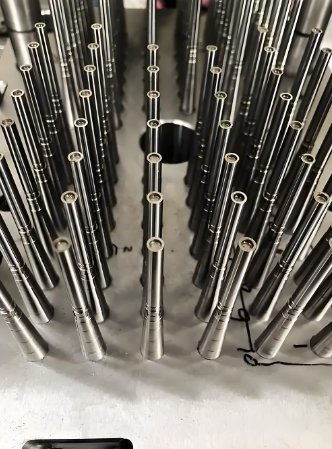
Supplier qualification is critical in medical injection molding. It ensures that materials, components, and services meet high industry standards. A reliable mold maker depends on trusted suppliers to maintain quality and regulatory compliance. Proper supplier evaluation reduces risks, prevents defects, and ensures smooth production.
1. What is Supplier Qualification?
1.1 Definition
Supplier qualification is the process of evaluating and approving vendors before they provide materials or services. It ensures they meet specific quality, compliance, and performance standards.
1.2 Why It Matters in Medical Injection Molding
- Ensures consistency in medical device production.
- Reduces manufacturing risks and defects.
- Guarantees compliance with FDA, ISO 13485, and GMP.
- Strengthens supply chain reliability.
2. Key Criteria for Supplier Qualification
2.1 Regulatory Compliance
- Suppliers must meet FDA and ISO standards.
- Documentation must align with medical industry regulations.
- Certifications like ISO 13485 and GMP ensure quality management.
2.2 Material Quality Standards
- Medical-grade plastics must be biocompatible and sterilizable.
- Suppliers must provide certificates of analysis for materials.
- Testing for durability and performance is essential.
2.3 Manufacturing Capabilities
- Suppliers must have modern, high-precision equipment.
- They should use automation and AI-driven quality control.
- Consistency in production must be demonstrated.
2.4 Quality Control Processes
- Must follow strict inspection protocols.
- Must provide data tracking and traceability.
- Defect detection systems should be in place.
2.5 Supply Chain Stability
- Multiple sourcing options reduce dependency on a single supplier.
- Inventory management must prevent material shortages.
- Shipping and logistics must be efficient and reliable.
3. The Role of Mold Makers in Supplier Qualification
3.1 Selecting Reliable Suppliers
- Mold makers assess supplier capabilities before approval.
- They ensure suppliers meet performance and compliance needs.
3.2 Conducting Supplier Audits
- Regular on-site audits verify production quality.
- Inspections check for adherence to medical manufacturing standards.
3.3 Ensuring Material Traceability
- Every material batch must have a tracking system.
- Full documentation helps in case of recalls or defects.
3.4 Working with Suppliers on Process Improvements
- Mold makers collaborate with suppliers to enhance efficiency.
- Continuous improvement reduces errors and increases productivity.
4. Steps in Supplier Qualification for Medical Injection Molding
4.1 Initial Supplier Screening
- Evaluate supplier history and reputation.
- Check industry certifications and compliance records.
4.2 On-Site Inspection and Audit
- Verify the supplier’s manufacturing process.
- Assess cleanliness and quality control systems.
4.3 Sample Testing and Validation
- Require material samples for performance testing.
- Conduct trial production runs to ensure consistency.
4.4 Compliance Documentation Review
- Examine regulatory approvals and certifications.
- Ensure proper labeling and documentation for medical materials.
4.5 Ongoing Monitoring and Requalification
- Conduct periodic audits to maintain supplier status.
- Track defect rates, delivery times, and material performance.
5. Risks of Not Qualifying Suppliers
5.1 Product Defects and Recalls
- Poor-quality materials lead to defective medical components.
- Recalls damage brand reputation and increase costs.
5.2 Regulatory Non-Compliance
- Failure to meet FDA or ISO standards can result in fines.
- Non-compliance can lead to legal issues and production shutdowns.
5.3 Supply Chain Disruptions
- Unqualified suppliers may fail to deliver materials on time.
- Production delays lead to financial losses.
5.4 Increased Costs
- Unreliable suppliers lead to frequent rework and material waste.
- Emergency sourcing is more expensive than qualified supply chains.
6. Best Practices for Effective Supplier Qualification
6.1 Establish Clear Supplier Requirements
- Define expectations for quality, compliance, and delivery.
- Require detailed documentation before approval.
6.2 Implement Supplier Scorecards
- Track supplier performance over time.
- Evaluate on-time delivery, defect rates, and compliance levels.
6.3 Use AI and Digital Tracking
- AI detects patterns in supplier performance.
- Digital records improve traceability and risk management.
6.4 Foster Strong Supplier Relationships
- Collaboration leads to process improvements.
- Long-term partnerships ensure consistent quality and pricing.
6.5 Conduct Regular Risk Assessments
- Identify potential supply chain disruptions early.
- Develop contingency plans for critical material shortages.
7. Future Trends in Supplier Qualification for Medical Injection Molding
7.1 AI-Driven Supplier Audits
- AI automates audit evaluations for faster risk detection.
- Machine learning improves supplier scoring accuracy.
7.2 Blockchain for Supply Chain Transparency
- Tracks material origins and movements.
- Prevents counterfeit medical materials.
7.3 Sustainability and Green Sourcing
- More focus on eco-friendly medical plastics.
- Regulations will require sustainable material sourcing.
7.4 Cloud-Based Supplier Management Systems
- Centralized supplier data for instant access.
- Real-time tracking of compliance and performance.
Supplier qualification is essential in medical injection molding. Reliable mold makers ensure material quality, compliance, and supply chain stability. Proper evaluation reduces risks, prevents defects, and guarantees consistent production. By adopting best practices, manufacturers can maintain high-quality standards while optimizing costs and efficiency.
